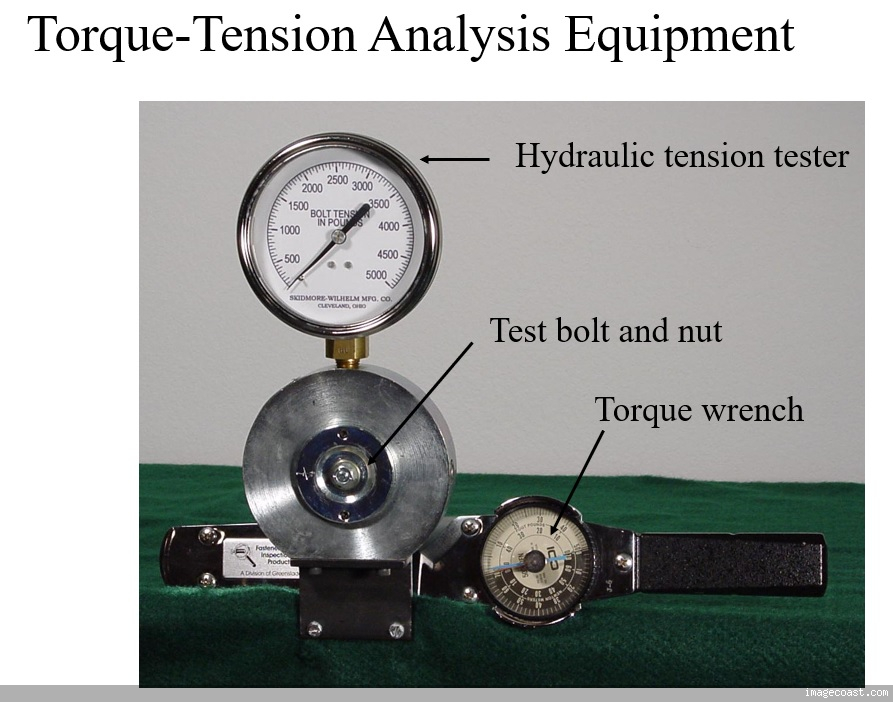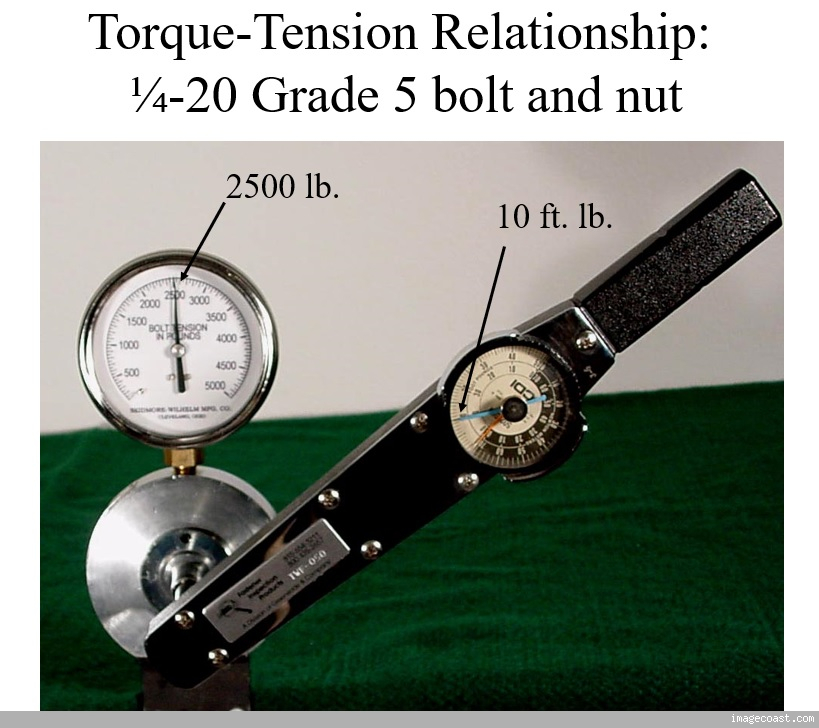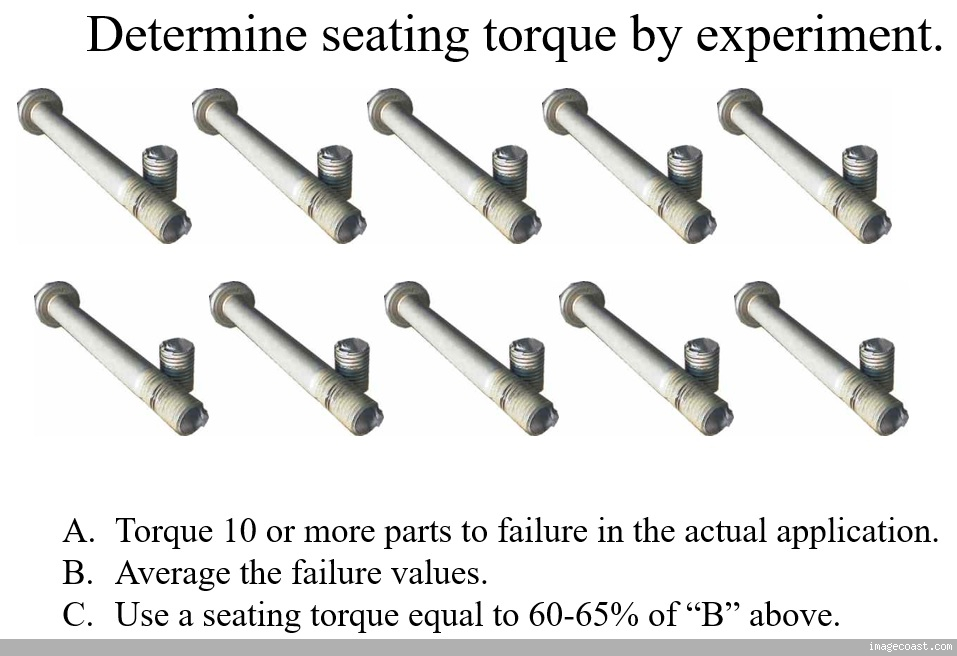-
Senior Member

-
Post Thanks / Like - 5 Thanks, 8 Likes
-
As a jet engine mechanic, torque was everything. Even the entire rotating mass through the engine was torqued using a dial caliper to measure how much we stretched the shaft. And the wrench we used was a torque multiplying wrench and the actual torque was never really known. Only the total stretch of the shaft. The shaft was about 8 feet long and roughly 4" in diameter. I do not remember how much we stretched it, but it was always fun to watch the faces of the new guys as we pulled the 3' breaker bar on the multiplier.
-
Post Thanks / Like - 0 Thanks, 2 Likes
-
On a roll

Thank you for posting this, Mike! There is a wealth of expertise on our forum. I appreciate everyone who shares it!
Mk IV Roadster - #8650 - delivered 7-17-2015 - first start 7-28-2018 - first go-kart 10-13-2018 - licensed and on the road 9-9-19: body/paint completed 3-17-2020.
Complete kit / 2015 Coyote / TKO600 / IRS / Wilwood brakes / Mid-Shift mod / Power Steering / Heater and Seat Heaters / RT turn signal / Breeze radiator shroud and mount
-
Senior Member

I have also read that when tightening by measuring stretch you can check the quality of the bolt by measuring TQ at the same time. If you get the stretch before getting to the expected torque, your bolt may be weak. Your formulas show why that works.
FFR MkII, 408W, Tremec TKO 500, 2015 IRS, DA QA1s, Forte front bar, APE hardtop.
-
Senior Member


Originally Posted by
CraigS

I have also read that when tightening by measuring stretch you can check the quality of the bolt by measuring TQ at the same time. If you get the stretch before getting to the expected torque, your bolt may be weak. Your formulas show why that works.
That is true. I've got more information on that subject as well as torque wrenches. Outside of the aerospace industry most people don't have their torque wrenches calibrated so that can be a problem also.
-
Member


Originally Posted by
Mike.Bray

That is true. I've got more information on that subject as well as torque wrenches. Outside of the aerospace industry most people don't have their torque wrenches calibrated so that can be a problem also.
I have 2 questions.
First question: if a bolt gets “over torqued” i.e. let’s say torqued to 110 ft. Lbs. and the recommended torque setting was 60 ft. Lbs., will the over torquing result in damage (over stretching) to the point that said bolt needs to be replaced?
Second question: I have seen some DIY methods of calibrating a torque wrench that seem questionable to me so in lieu of an unproven DIY method, where can one get a torque wrench properly calibrated?
Greg
MK IV Complete Kit. Delivered:09/25/2020. Dart Block 427 w/ EFI.
TKX 5 Speed. IRS. P/S. Wilwoods. RT and Breeze Mods.
-
Senior Member

You can over torque (yield) a steel bolt by a small amount and it will be fine. All you have done is stretched (yielded) the steel. Take the factory torque to yield fasteners as an example. Think of it this way, as you stretch (yield) the bolt the cross section of the bolt reduces. The more your stretch (yield) the bolt the thinner the bolt will get. As it gets thinner the ability to carry load also reduces. By the way the formulas above are a bit of a simplification. Look at the same diameter threads but with different thread counts the torque is different because the diameter at the root of the thread is different.
Last edited by Mike N; 03-02-2022 at 09:42 AM.
Mike............
FFR2100 - 331 with KB supercharger - T5 - 5 link rear 3.08's and T2 Torsen.
-
Post Thanks / Like - 0 Thanks, 1 Likes
-
Senior Member

-
"where can one get a torque wrench properly calibrated?"
Process Instruments, Inc. in Pittsburgh, PA. https://procinst.com/ A good friend of mine owns the business.
I don't recall what the price was, but it was meaningfully cheaper than buying a new wrench and you'll know for sure that the wrench is calibrated correctly.
Last edited by Jacob McCrea; 03-02-2022 at 05:31 PM.
-
Post Thanks / Like - 1 Thanks, 1 Likes
 GT53
GT53 thanked for this post
-
I was on a tour of the engine bay of a Royal Caribbean cruise, and one of the things that I remember is that
they did not use torque wrenches.....
Bolt stretch was all that mattered.
MK2 #3319.... On the road since 2002 with a lot of upgrades
-
Just curious question. All this talk about places not using/having torque wrench. Wouldn't that suggest they use every bolt with a nut? Don't they have/use any bolts without nuts? Like main journal bolts? I would think the same principle apply which would require a torque wrench. Or am I missing something. Or would they use the one time use bolts where you tighten a specific amount of turns after contact?
-
Senior Member


Originally Posted by
Jeff33Ford

Just curious question. All this talk about places not using/having torque wrench. Wouldn't that suggest they use every bolt with a nut? Don't they have/use any bolts without nuts? Like main journal bolts? I would think the same principle apply which would require a torque wrench. Or am I missing something. Or would they use the one time use bolts where you tighten a specific amount of turns after contact?
I've only seen it two ways. One is actually measuring the stretch when you can access both ends of the bolt. This is how hi-performance connecting rod bolts are done. There's even a special tool that looks like an OD micrometer except with a dial indicator.
Otherwise its done by torque with a calibrated torque wrench.
There are some tables for number of turns but the accuracy is not very good IMO.
-
Just remember surfaces must be clean and consistent so the torque actually translates to the right bolt load. Extra friction will reduce stud load even though you carefully torqued the bolt to the correct specification.
-
I’d agree, angle alone is not as accurate as torque.
-
Senior Member

Yep lube is important. I have never seen wax listed before so that is interesting. I have seen type of oil makes a difference especially if one had moly in it. Also depends on grade of bolt, material it is made from, especially w/o a nut it matters what it is threaded into. Once you get into this, it is almost like there is another world that most people have no idea exists. Here are a bunch of charts all in one place that cover a lot of, but probably not all of, the possibilities.
https://www.fastenal.com/content/mer...ce%20Guide.pdf
There is a bunch of info here from ARP who BTW have their own lube.
https://arp-bolts.com/p/instructions.php
FFR MkII, 408W, Tremec TKO 500, 2015 IRS, DA QA1s, Forte front bar, APE hardtop.
-
Post Thanks / Like - 0 Thanks, 1 Likes
-
As a former drag racer I rebuilt my engines a few times a season. I invested in a bolt stretch indicator used to check previously used bolt from engine build to engine build. It is very simple and inexpensive tool.once you know the bolts original measurement you insert the bolt between 2 points on the tool to check for any over sstretch. The cost is under $10.




 Thanks:
Thanks:  Likes:
Likes: 

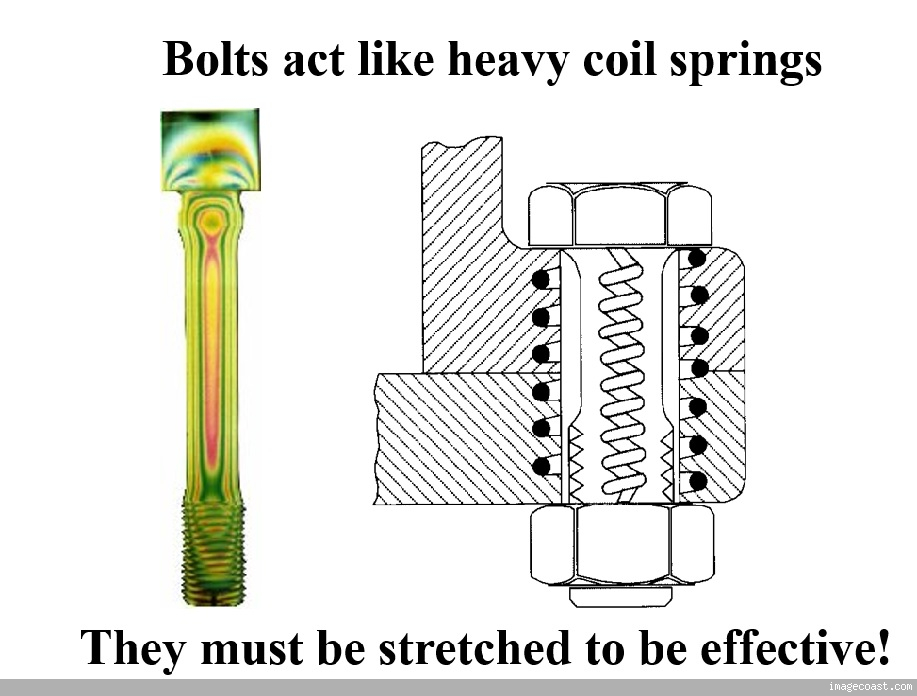
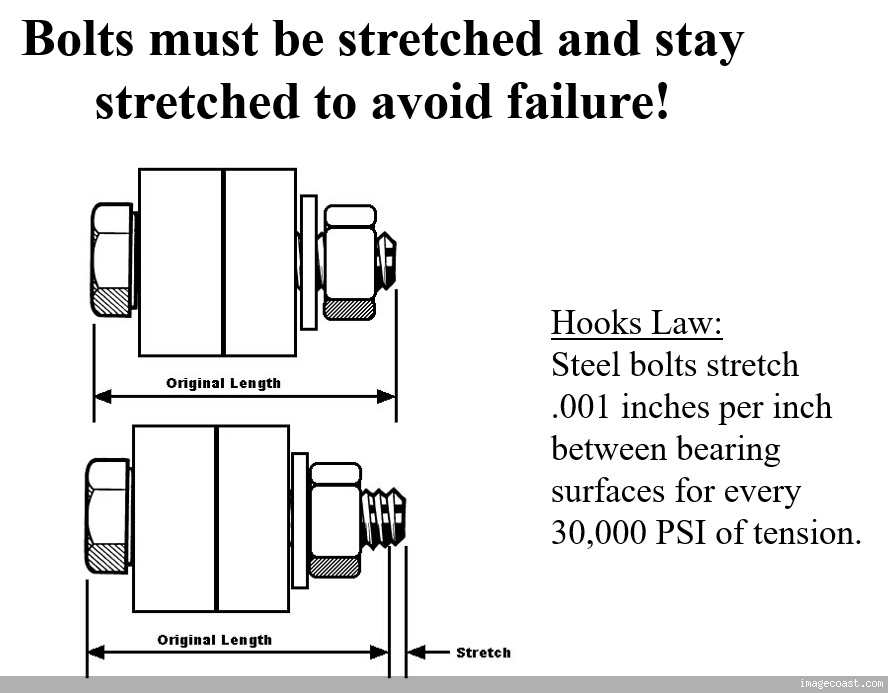
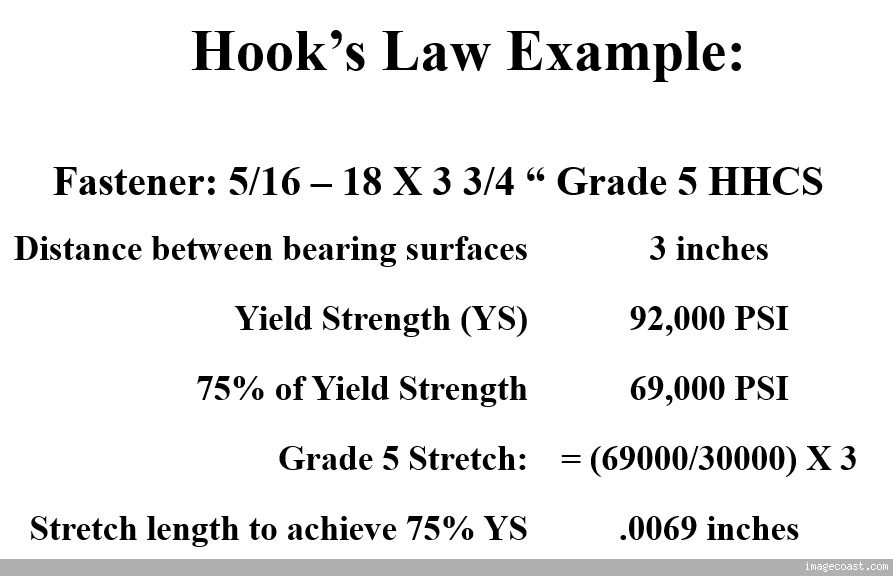
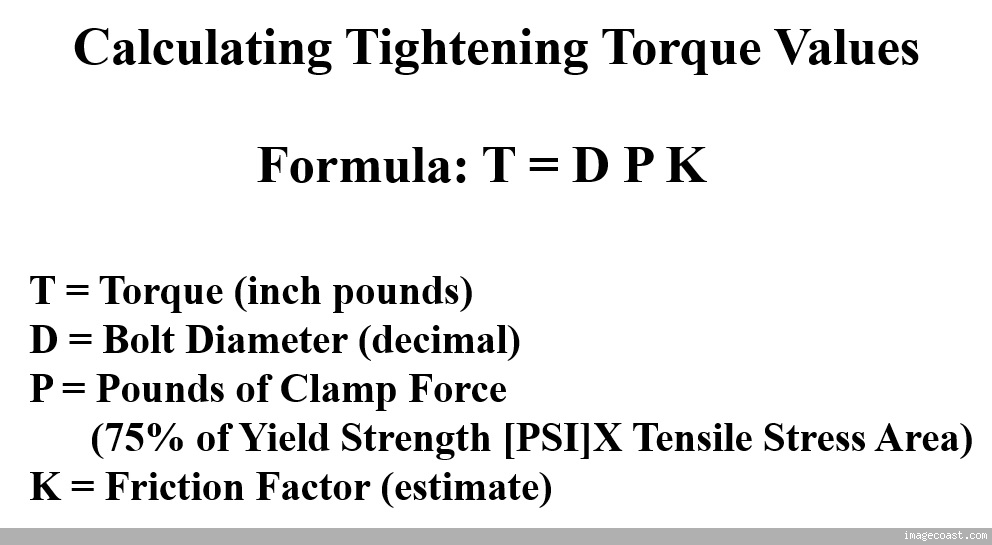
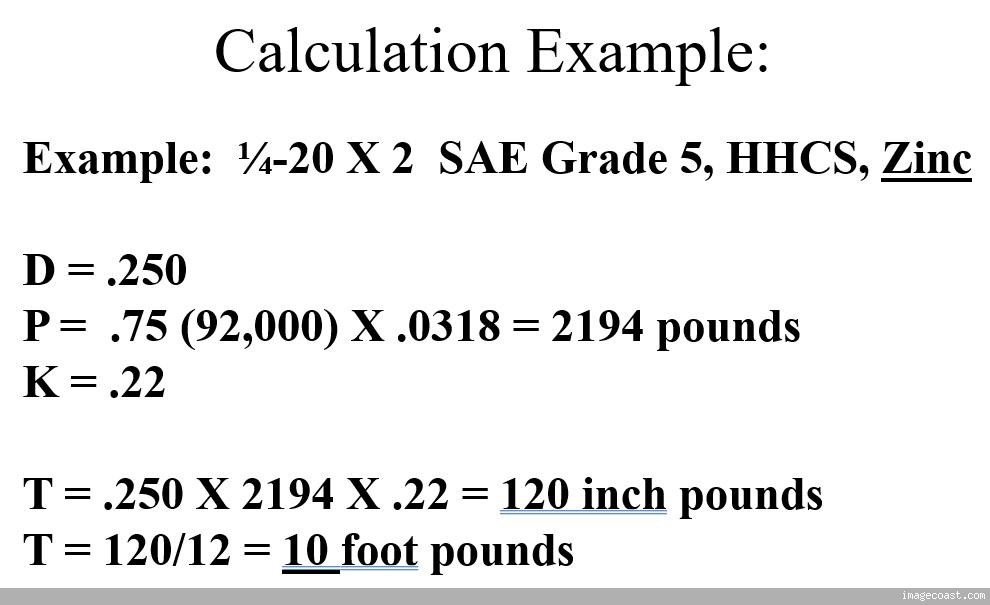
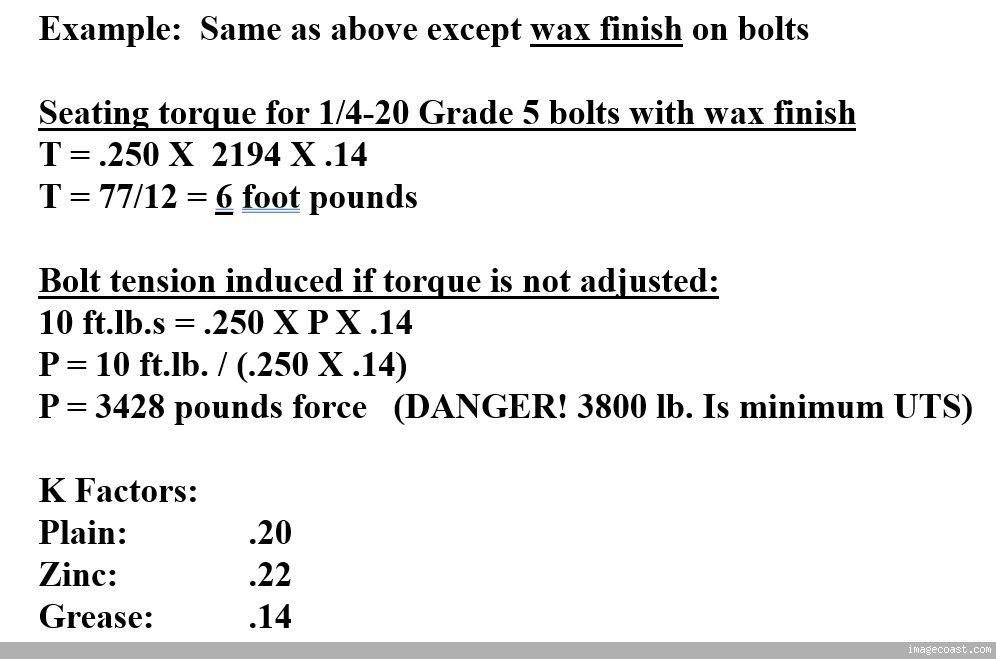
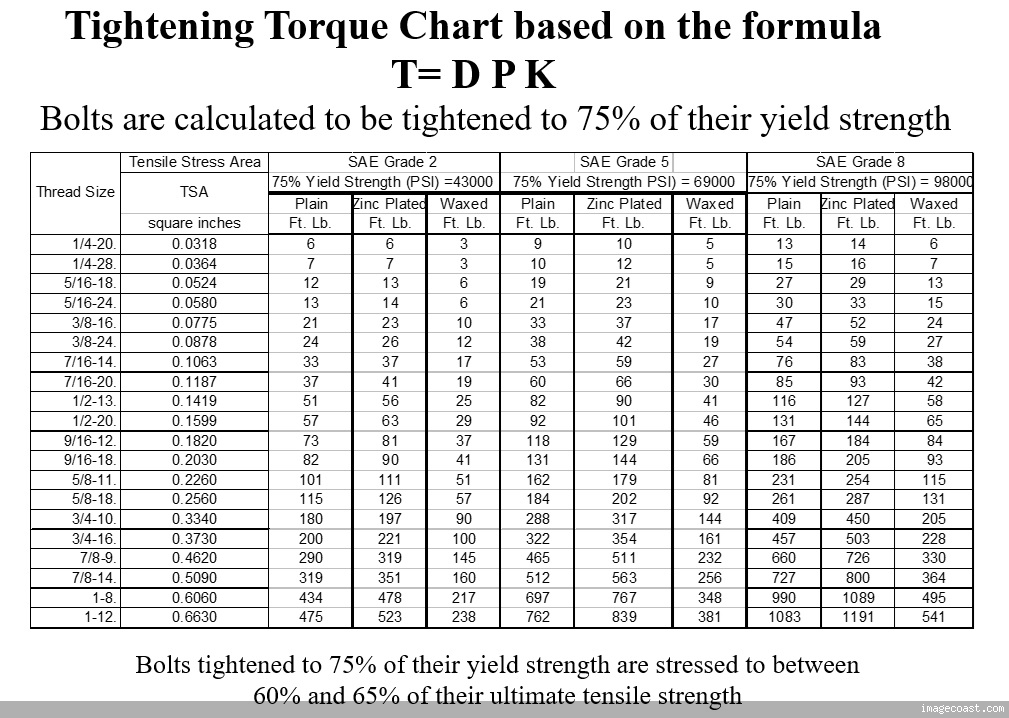

 Reply With Quote
Reply With Quote








